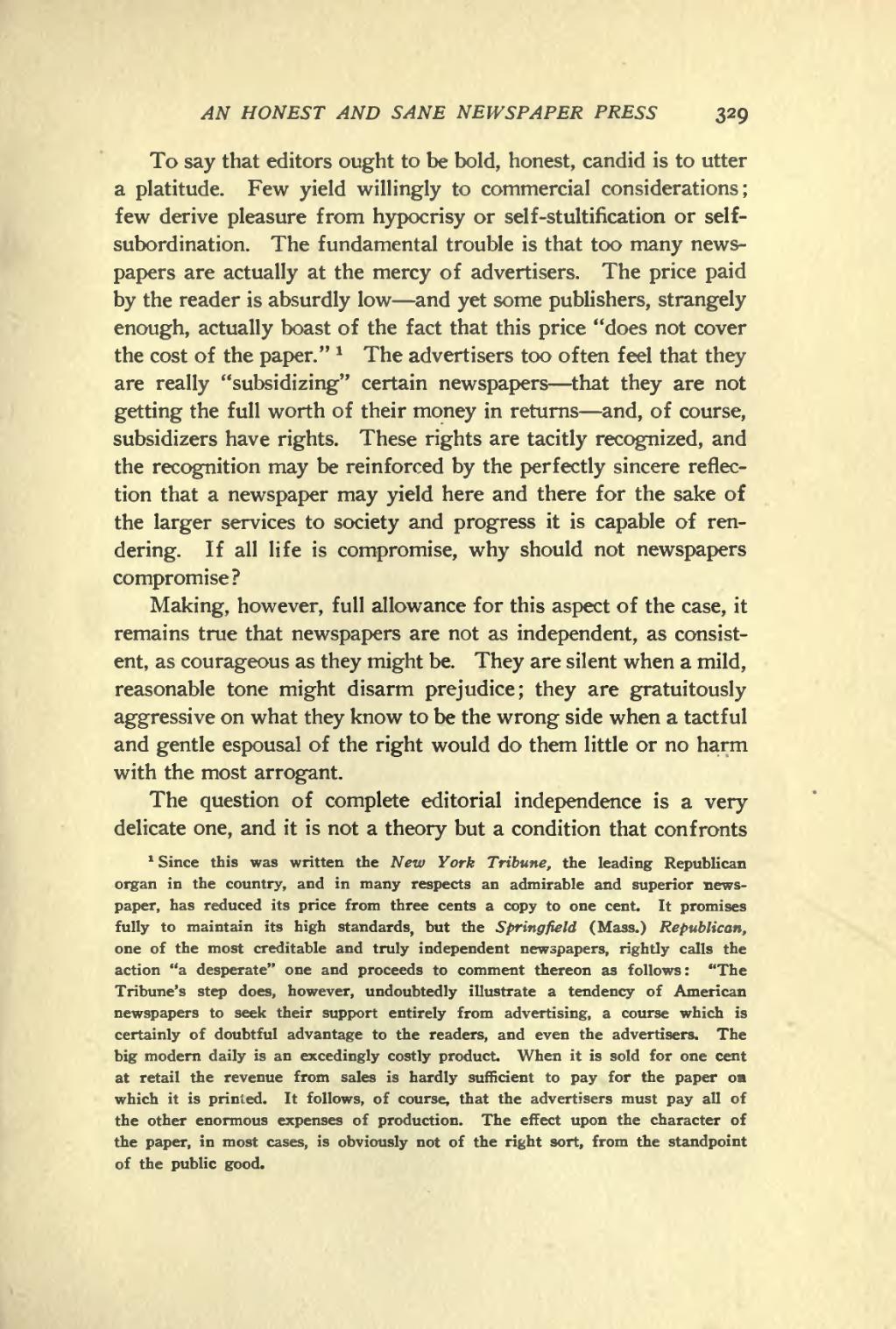AN HONEST AND SANE NEWSPAPER PRESS 329
To say that editors ought to be bold, honest, candid is to utter a platitude. Few yield willingly to commercial considerations; few derive pleasure from hypocrisy or self -stultification or self- subordination. The fundamental trouble is that too many news- papers are actually at the mercy of advertisers. The price paid by the reader is absurdly low — and yet some publishers, strangely enough, actually boast of the fact that this price "does not cover the cost of the paf)er." ^ The advertisers too often feel that they are really "subsidizing" certain newspapers — that they are not getting the full worth of their money in returns — and, of course, subsidizers have rights. These rights are tacitly recognized, and the recognition may be reinforced by the perfectly sincere reflec- tion that a newspaper may yield here and there for the sake of the larger services to society and progress it is capable of ren- dering. If all life is compromise, why should not newspapers compromise?
Making, however, full allowance for this aspect of the case, it remains true that newspapers are not as independent, as consist- ent, as courageous as they might be. They are silent when a mild, reasonable tone might disarm prejudice; they are gratuitously aggressive on what they know to be the wrong side when a tactful and gentle espousal of the right would do them little or no harm with the most arrogant.
The question of complete editorial independence is a very delicate one, and it is not a theory but a condition that confronts
- Since this was written the New York Tribune, the leading Republican
organ in the country, and in many respects an admirable and superior news- paper, has reduced its price from three cents a copy to one cent. It promises fully to maintain its high standards, but the Springfield (Mass.) Republican, one of the most creditable and truly independent newspapers, rightly calls the action "a desperate" one and proceeds to comment thereon as follows: "The Tribune's step does, however, undoubtedly illustrate a tendency of American newspapers to seek their support entirely from advertising, a course which is certainly of doubtful advantage to the readers, and even the advertisers. The big modern daily is an excedingly costly product. When it is sold for one cent at retail the revenue from sales is hardly sufficient to pay for the paper oa which it is printed. It follows, of course, that the advertisers must pay all of the other enormous expenses of production. The effect upon the character of the paper, in most cases, is obviously not of the right sort, from the standpoint of the public good.
